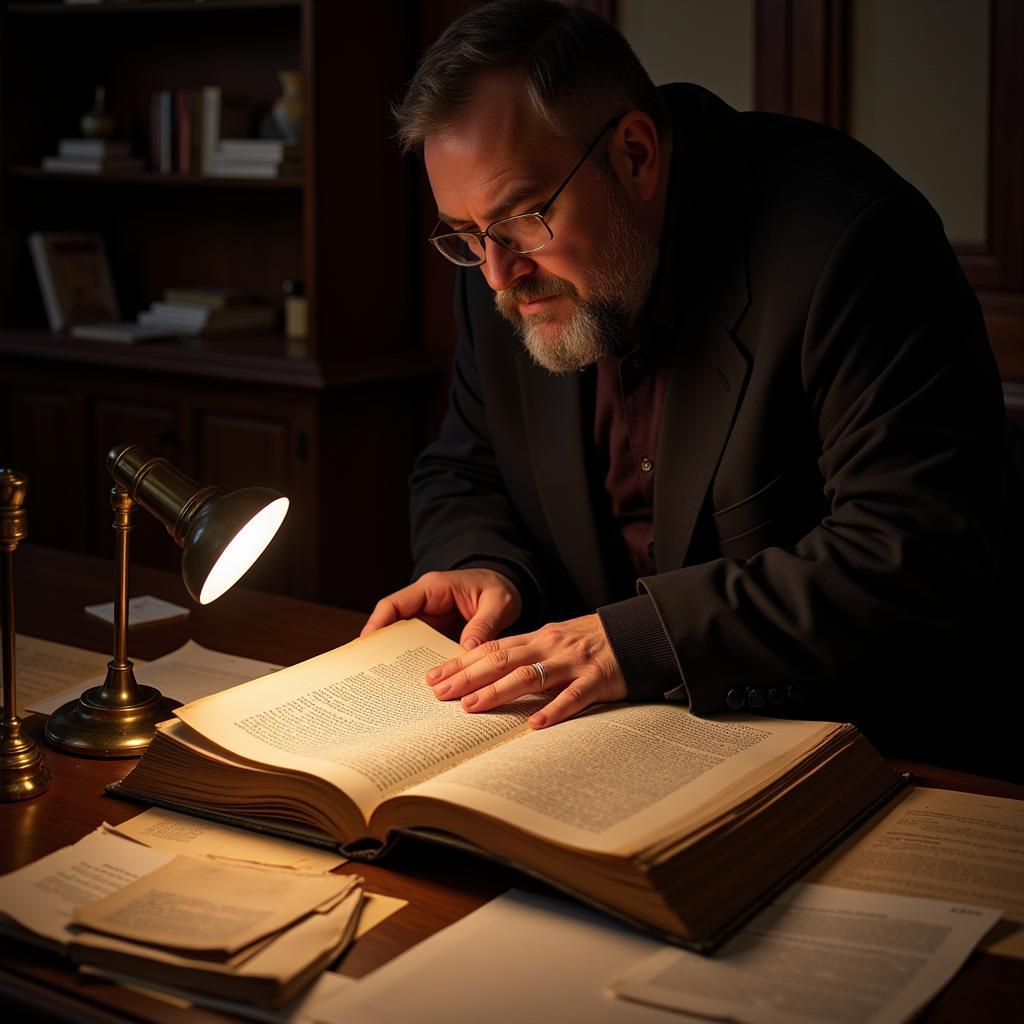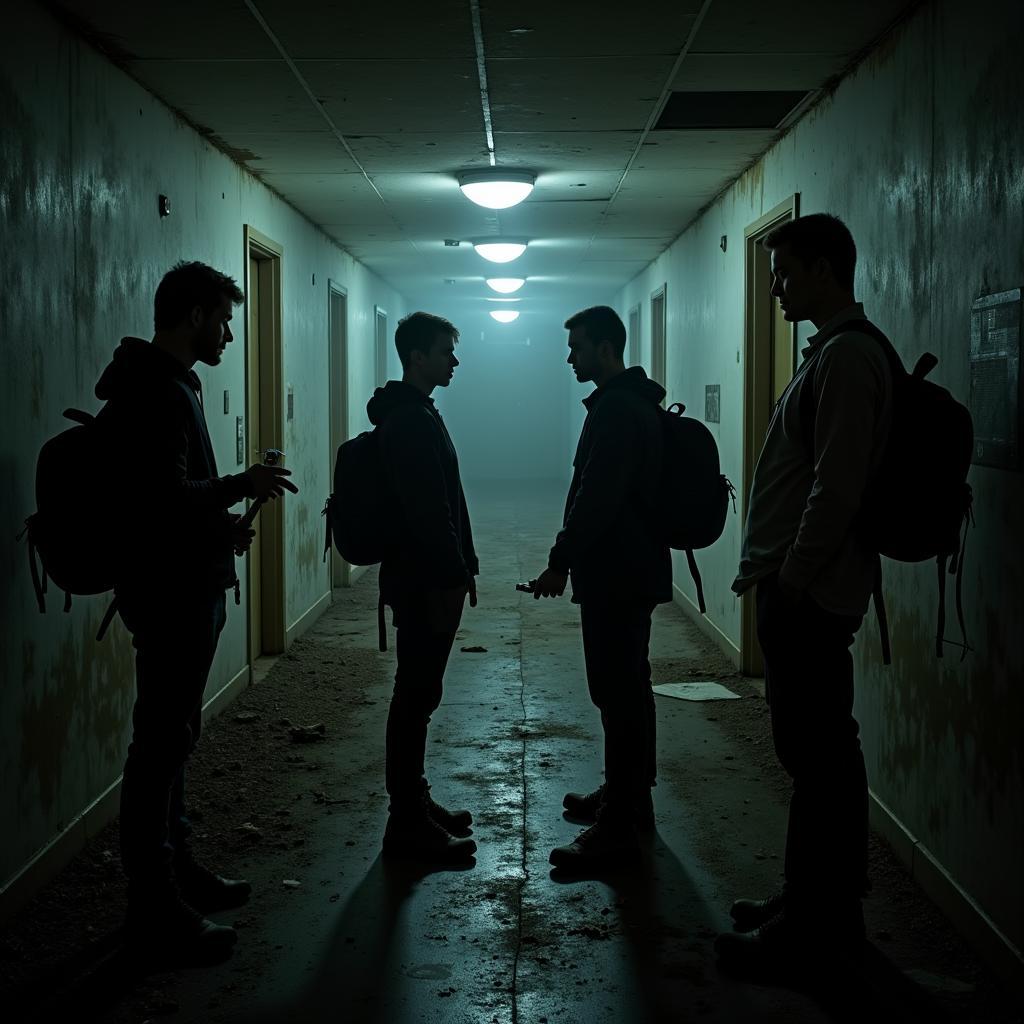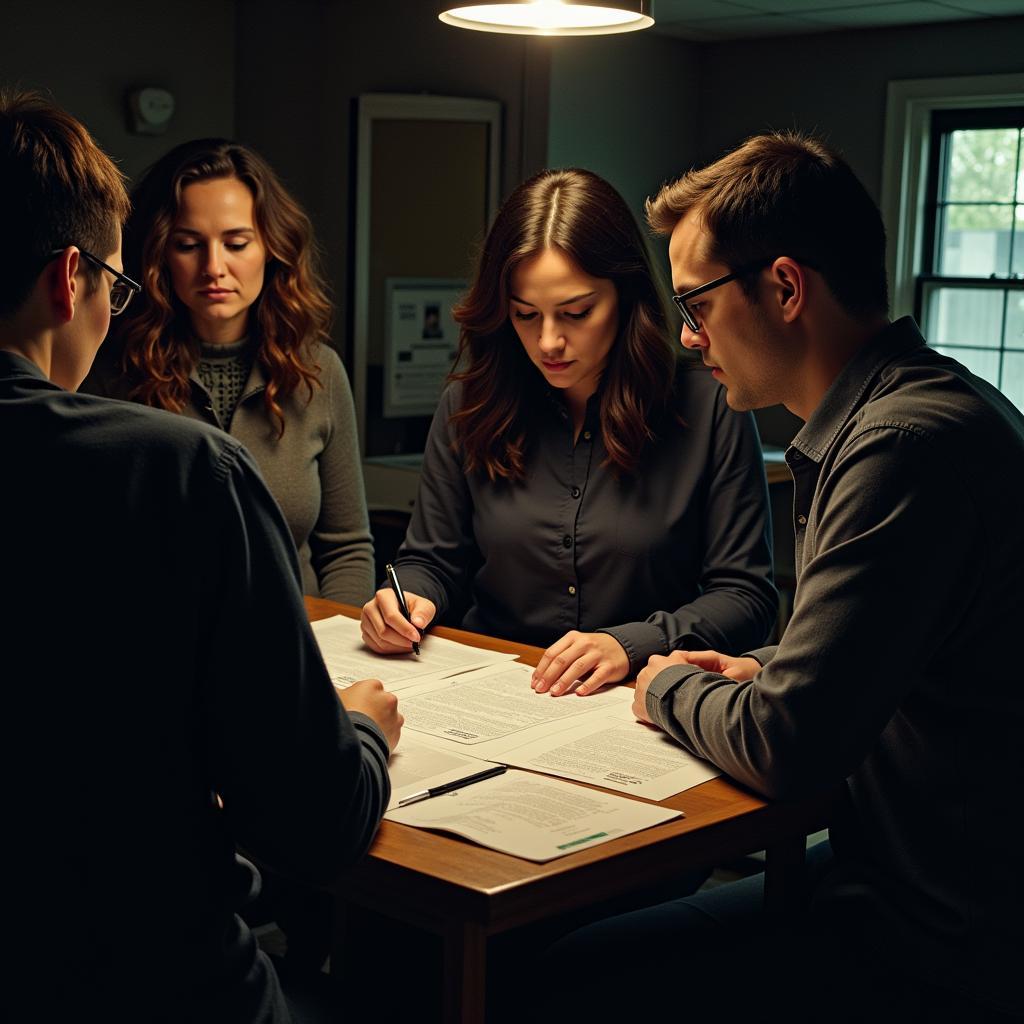The world of paranormal research is vast and complex, often involving ancient texts, forgotten languages, and firsthand accounts from across the globe. This is where the Research Translator becomes indispensable, bridging the gap between the unknown and our understanding. A research translator’s skills go beyond simple linguistic conversion; they require a deep understanding of both the source language and the cultural context surrounding the paranormal phenomenon being investigated.
Paranormal research often requires delving into historical archives, analyzing local folklore, and interpreting eyewitness testimonies. A skilled research translator is not just fluent in multiple languages, but also possesses a strong foundation in cultural anthropology, history, and ideally, some familiarity with paranormal studies themselves. This multifaceted skill set allows them to accurately convey not just the words, but also the nuanced meanings and cultural significance behind them. For instance, a researcher investigating a supposed haunting in a remote village might need a research translator to interpret local legends, which could provide clues about the entity’s origins and motivations. Understanding the local beliefs about the afterlife, spiritual practices, and traditional rituals can shed light on the reported phenomena and provide invaluable context for the investigation. You can delve deeper into research practices with our resources on sample of informed consent in research.
The Importance of Accuracy in Paranormal Research Translation
Accurate translation is crucial in paranormal research because misinterpretations can lead to false conclusions and hinder the investigation. A seemingly insignificant error in translating an ancient text, for instance, could drastically alter the perceived meaning and lead researchers down the wrong path. Imagine a text describing a spectral figure as “benevolent” being mistranslated as “malevolent”—the entire interpretation of the entity and its actions would be skewed.
Avoiding Misinterpretations and Cultural Bias
Research translators must be acutely aware of potential cultural biases that might influence their interpretation. Their own beliefs and assumptions about the paranormal must be carefully examined to ensure they don’t color the translation. Objectivity is paramount. A translator skeptical of paranormal phenomena, for example, might subconsciously downplay or dismiss certain details in their translation, potentially obscuring vital information. This highlights the importance of finding a research translator with a neutral stance, allowing the evidence to speak for itself.
 Research Translator Analyzing Ancient Text
Research Translator Analyzing Ancient Text
What Skills Does a Research Translator Need?
A research translator specializing in the paranormal needs a unique blend of skills:
- Linguistic Proficiency: Excellent command of both the source and target languages is essential.
- Cultural Sensitivity: Deep understanding of the cultural context surrounding the paranormal phenomena.
- Research Skills: Ability to conduct thorough research and verify information from multiple sources.
- Knowledge of Paranormal Studies: Familiarity with common paranormal terminology and concepts is highly beneficial.
- Adaptability: The ability to work with diverse materials, from ancient texts to modern interviews.
This diverse skillset makes a research translator an invaluable asset to any paranormal investigation. They are the key to unlocking the secrets hidden within different languages and cultures.
Navigating the Challenges of Paranormal Research Translation
Translating ancient texts or obscure dialects often presents unique challenges. The language may have evolved significantly, or the original meaning of certain words might have been lost to time. Research translators must be adept at deciphering cryptic phrases, using context and historical knowledge to piece together the most accurate interpretation. Sometimes, they must also consider exploring avenues like research abroad to access primary sources and local expertise.
 Paranormal Research Team Conducting Field Investigation
Paranormal Research Team Conducting Field Investigation
Finding a Qualified Research Translator
Finding a qualified research translator for paranormal research can be challenging. It requires seeking out individuals with both linguistic expertise and a genuine interest in the field. Networking with researchers, academics, and paranormal enthusiasts can be a good starting point. It’s crucial to thoroughly vet potential candidates, assessing their qualifications and experience.
“A skilled research translator is like a detective, piecing together fragments of information to reveal a hidden truth,” says Dr. Evelyn Reed, a renowned linguistic anthropologist. “Their ability to navigate cultural nuances and linguistic complexities is essential for unraveling the mysteries of the paranormal.”
The Future of Research Translation in Paranormal Investigations
As paranormal research continues to evolve, the role of the research translator will only become more crucial. With increasing globalization and access to information, the need to understand and interpret paranormal accounts from diverse cultures will be paramount. “The future of paranormal research lies in collaboration and cross-cultural understanding,” states Professor Alistair Blackwood, a leading figure in parapsychology. “Research translators are the bridge builders, enabling us to connect with different perspectives and expand our knowledge of the unknown.” Consider utilizing resources like those available for translate research to spanish as a starting point for broadening your research scope.
 Research Translator Working with Paranormal Investigators
Research Translator Working with Paranormal Investigators
In conclusion, the research translator plays a vital role in unlocking the secrets of the paranormal. Their expertise in language, culture, and research methods allows them to connect us with a world beyond our immediate understanding. By bridging linguistic and cultural divides, they help us to explore the mysteries of the unknown and expand our knowledge of the paranormal realm. Are you ready to delve into the global landscape of paranormal research? Explore resources like worldwide business research to expand your horizons. For a comprehensive guide on evaluating research, you might find evaluating research in communication disorders 8th edition pdf useful.
FAQ
- What languages are most commonly needed for paranormal research translation?
- How can I find a qualified research translator for my paranormal investigation?
- What is the average cost of hiring a research translator?
- What ethical considerations are important for research translators in the paranormal field?
- How can I ensure the accuracy of a paranormal translation?
- What are the biggest challenges faced by research translators in this field?
- How can technology aid in paranormal research translation?
Scenarios:
- Ancient Text Decipherment: A researcher needs a translator fluent in ancient Sumerian to decipher cuneiform tablets potentially describing paranormal activity.
- Eyewitness Testimony Interpretation: A team investigates a haunting in rural Japan and needs a translator to interview local witnesses and interpret their accounts.
- Cross-Cultural Research Collaboration: Researchers from different countries collaborate on a project about paranormal experiences and need a translator to facilitate communication and ensure accurate data analysis.
Further Exploration:
Explore more related articles on our website about language, culture and paranormal research.
Call to Action:
For assistance with your Paranormal Research needs, contact us 24/7: Phone: 0904826292, Email: research@gmail.com, or visit us at No. 31, Alley 142/7, P. Phú Viên, Bồ Đề, Long Biên, Hà Nội, Việt Nam.